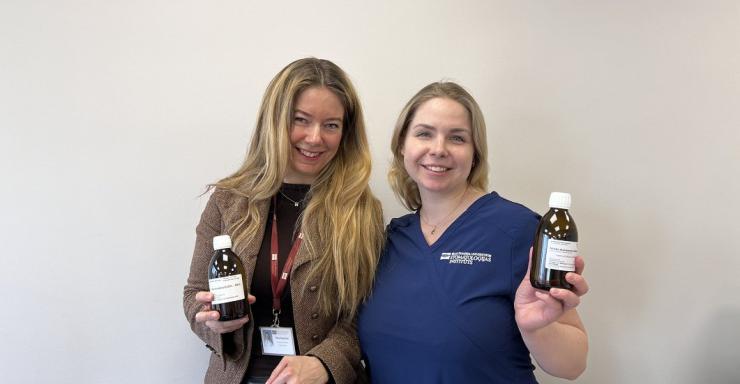Rīga Stradiņš University (RSU) invites women who have given birth in Latvian hospital maternity wards since 2022 to participate in a study.
Survey on Childbirth Experiences This survey is part of the international World Health Organization (WHO) study conducted in several countries. It includes questions about satisfaction with provided care, potential emotional or physical abuse, breastfeeding support, and emotional assistance. This is a continuation of the study that began in 2021, aimed at assessing whether improvements in maternity care have been observed.
The continuation of the study will evaluate changes in women's satisfaction with childbirth experiences to identify areas for further improvement in care. In Latvia, the study is led by RSU lecturer, gynecologist, and obstetrician Elizabete Ārgale: "In 2021, the focus was on how pandemic restrictions affected childbirth care and women's satisfaction with the support provided. Now that COVID-related restrictions have been lifted, those questions have been removed from the survey, while other topics remain. This will allow us to compare how the care situation evolves. New questions about mental health have been added, reflecting its growing importance in society. For example, we ask whether someone inquired about how the woman was feeling during care or whether psychological help was offered when facing difficulties."
The study is unique because it highlights women's perspectives on what happens behind the doors of delivery rooms. Previous research on childbirth outcomes has mostly focused on medical aspects. Data from the initial phase of the study brought attention to the issue of obstetric violence. After collecting new data, it will be possible to assess changes, especially as public discourse on this topic has increased and steps have been taken to improve care (e.g., specialists have had the opportunity to attend courses on providing emotional support). Early comparative data indicate that the rate of reported obstetric violence has decreased from 17% to 5.2%, comparable to Scandinavian levels, where it stands at 8%.
"In 2021, 62% of women reported not receiving information about warning signs related to their health, and 75% about their baby’s health. Providing such information is relatively simple — explaining what to watch for and what the risks are. Fortunately, these results also show signs of improvement. Preliminary data indicate that 41% of mothers were not informed about warning signs for their health, and 30% for their baby. A larger number of participants will help better evaluate these changes," explains the study lead.
So far, 1,600 mothers have completed the new survey, but 4,000–5,000 respondents are needed for more robust interpretation. The WHO study involves over 22 countries from the European region, with additional countries from other continents joining gradually.
Women aged 18 or older who have given birth in a hospital after January 1, 2022, are eligible to participate (homebirth care is not assessed).
Help Improve Maternity Services in Latvia! Participate in this international study and share your childbirth experience. Participation is voluntary, and completing the survey will take about 15 minutes.
Complete the Survey in Latvian Share the survey with other mothers!
The World Health Organization, in collaboration with various European countries, including Latvia, is conducting the Imagine EURO (Improving Maternal Newborn Care in the EURO Region) study. The project's goal is to gather information about the quality and accessibility of healthcare for mothers and their newborns. Survey improvements and additional questions have been included based on feedback from previous participants.
Photo: Pixabay.com


